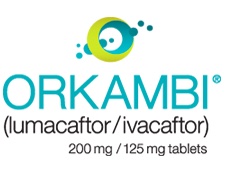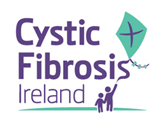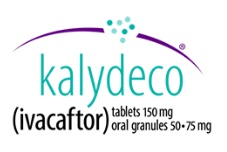Irish CF Groups Disappointed in Government’s Funding Rejection of Orkambi as Not Cost Effective

 Ireland’s National Centre for Pharmacoeconomics (NCPE) stirred the pot this week with its decision that the cost of the new cystic fibrosis (CF) drug Orkambi is not justified by its acknowledged benefits, and should not be paid for by the Irish Health Service Executive.
Ireland’s National Centre for Pharmacoeconomics (NCPE) stirred the pot this week with its decision that the cost of the new cystic fibrosis (CF) drug Orkambi is not justified by its acknowledged benefits, and should not be paid for by the Irish Health Service Executive.
The regulatory agency, whose mission is to facilitate healthcare decisions on reimbursement for the cost of drugs and technologies by applying clinical and scientific evidence in a systematic framework, posted a terse message on its website on June 2 reading: “Reimbursement Not Recommended at the Submitted Price,” adding: “The manufacturer Vertex Pharmaceuticals have confirmed that patients currently receiving Orkambi under the Managed Access Scheme will continue to receive the drug until reimbursement is finalized in Ireland.” The price is reportedly estimated at approximately €160,000 per patient per year.
 Vertex’s Orkambi, an oral combination of the drugs lumacaftor and ivacaftor (lumacaftor 200 mg/ivacaftor 125 mg — the latter is also marketed alone under the Vertex trade name Kalydeco) is indicated for treatment of cystic fibrosis in patients ages 12 and older who are homozygous for the F508del mutation in the CFTR gene. Orkambi targets the underlying cause of the disease in people who have two copies (one inherited from each parent) of the most common CF gene mutation F508del.
Vertex’s Orkambi, an oral combination of the drugs lumacaftor and ivacaftor (lumacaftor 200 mg/ivacaftor 125 mg — the latter is also marketed alone under the Vertex trade name Kalydeco) is indicated for treatment of cystic fibrosis in patients ages 12 and older who are homozygous for the F508del mutation in the CFTR gene. Orkambi targets the underlying cause of the disease in people who have two copies (one inherited from each parent) of the most common CF gene mutation F508del.
The defective genes cause production of an abnormal protein that disrupts water and chloride transport in the body — especially in the lungs and digestive tract (in other parts as well), resulting in poor flow of salt and water into and out of cells, leading to buildup of abnormally thick, sticky mucus that can cause chronic lung infections, other severe respiratory and digestive problems, and being a risk factor for complications such as infections and diabetes. It also causes progressive lung damage, eventually leading to death.
Having two copies of the F508del mutation is the leading cause of CF. According to the Cystic Fibrosis Foundation and the UK CF Registry, about half of the respective populations of people with cystic fibrosis in both the U.S. and the U.K. have two copies of the F508del mutation.
The NCPE announcement came as a bitter disappointment for Irish CF advocates, patients, and their families. A Dublin-based advocacy group called YesOrkambi involving parents and people with CF in Ireland posted a video on its Facebook site in support of public reimbursement of the cost of treatment of Orkambi in Ireland, noting: “When the NCPE said no to the life-changing drug Orkambi yesterday, it was a devastating blow. There are real people behind the price tag and we simply cannot allow a price to be put on their lives… We won’t rest until we get a #YesOrkambi.”
 Philip Watt of the main Irish CF advocacy group Cystic Fibrosis Ireland was cited in some media saying he is disappointed by the NCPE’s decision not to fund the drug. “We support a fairer deal for this drug,” Watt commented to The Irish Times, “but it will be a travesty if this drug is not provided to our patients or if there is a significant delay in providing this drug.”
Philip Watt of the main Irish CF advocacy group Cystic Fibrosis Ireland was cited in some media saying he is disappointed by the NCPE’s decision not to fund the drug. “We support a fairer deal for this drug,” Watt commented to The Irish Times, “but it will be a travesty if this drug is not provided to our patients or if there is a significant delay in providing this drug.”
 According to the European Respiratory Society (ERS), cystic fibrosis is the most common lethal inherited disease of white races, although no ethnic group is exempt from the disease. CF is usually caused by the absence, dysfunction, or reduced numbers of the multifunctional CF transmembrane regulator (CFTR) protein, which has a key function in regulating the amount of water in airway surface liquid. If the CFTR protein is not working normally, clearance of bacteria and particles from the lungs is impaired. The society notes that either correcting the dysfunction of this protein or dealing with the downstream consequences is key to developing therapies that will modify the natural history of CF.
According to the European Respiratory Society (ERS), cystic fibrosis is the most common lethal inherited disease of white races, although no ethnic group is exempt from the disease. CF is usually caused by the absence, dysfunction, or reduced numbers of the multifunctional CF transmembrane regulator (CFTR) protein, which has a key function in regulating the amount of water in airway surface liquid. If the CFTR protein is not working normally, clearance of bacteria and particles from the lungs is impaired. The society notes that either correcting the dysfunction of this protein or dealing with the downstream consequences is key to developing therapies that will modify the natural history of CF.
Cystic Fibrosis Ireland says the country has the highest rate of CF in the world, with approximately 1 in 19 Irish people believed to be carriers of the mutant CFTR gene that is the disease’s primary cause. A European Respiratory Society “whitebook” report, looking at lung health across all countries in Europe, found that Ireland has one of the highest death rates from lung disease in Western Europe, with the prevalence of diseases such as asthma and cystic fibrosis particularly high.
The ERS Whitebook also addresses the new challenge that the issue of the high cost of emerging treatments presents, projecting that the cost of illness is likely to increase greatly with the advent of novel, expensive medications, citing in particular Vertex’s ivacaftor (Kalydeco AKA VX-770), which has been tested in CF patients carrying at least one copy of the G551D mutation.
The report cites a double-blind, placebo-controlled, 24-week trial in which CF patients receiving the active ivacaftor compound saw an increase of more than 10 percent in forced expiratory volume in 1 second (FEV1, a key measurement of lung function), were half as likely to have a pulmonary exacerbation, gained on average 2.7 kg in weight, and, “almost incredibly,” halved their sweat chloride concentrations. But it notes that in the U.S., Kalydeco costs in the neighborhood of $294,000 (about €220,000) per patient per year.
An estimated 500 people currently living with CF in Ireland could potentially benefit from Orkambi therapy.
The ERS report notes that the financial impact on the public purse will initially depend on a country’s prevalence of CF and the percentage of patients who carry the G551D mutation, noting that in Europe, Ireland has the highest prevalence of the disorder, with 7.6 percent of its total CF population carrying G551D.
The report says, for example, that if 5 percent of the CF population in the U.K. who carry at least one copy of G551D were prescribed the medication, the cost would be approximately €75 million per year, raising the current cost of CF care by about 50 percent. The Whitebook authors say strategies will be needed to decide who will benefit from these novel small molecule therapies, and how they will be financed.
In the U.S., Vertex offers a Financial Assistance and Patient Support Program (Vertex GPS) to help eligible patients who have been prescribed a Vertex medicine understand their insurance benefits and resources available to them. Vertex also offers a co-pay assistance program for patients with commercial insurance coverage and a free medicine program for qualifying patients who are uninsured and who meet income and other criteria. More information is available by visiting https://www.VertexGPS.com.
In a report by Ireland’s National Public Service Broadcaster Raidió Teilifís Éireann (RTÉ), Irish Health Minister Simon Harris said the door to publicly supported Orkambi treatment is not closed, and that cost negotiations with Vertex Pharmaceuticals will be completed “as a priority,” and emphasized that CF patients currently participating in trials of the drug will continue to receive it during negotiations.
 RTÉ’s Morning Ireland also reported that NCPE Clinical Director Prof. Michael Barry affirmed that Vertex is willing to negotiate on the price, but maintained that the drug manufacturer has “got the price wrong” on Orkambi, expressing hope that a reduction in price can be reached similar to the way deals have been reached with Vertex in the past with their earlier cystic fibrosis drug Kalydeco.
RTÉ’s Morning Ireland also reported that NCPE Clinical Director Prof. Michael Barry affirmed that Vertex is willing to negotiate on the price, but maintained that the drug manufacturer has “got the price wrong” on Orkambi, expressing hope that a reduction in price can be reached similar to the way deals have been reached with Vertex in the past with their earlier cystic fibrosis drug Kalydeco.
Barry explained on the program that currently the NCPE does not have long-term proof that Orkambi prolongs life, and that clinical trial evidence shows that treatment with the drug results in a modest improvement in breathing tests along with a reduction in hospitalization and reduction in consumption of antibiotics, but that the agency must weigh benefits against cost in reimbursement approvals.
He also argued that these determinations are not about “putting a price on life,” but about whether added health benefits are cost-justified, maintaining that providing Orkambi to all Irish cystic fibrosis patients would cost almost €400 million over five years, or “almost two-thirds of the cost of the new National Children’s Hospital,” and that the NCPE has determined that the price of Orkambi treatment would have to be lower than €30,000 a year per patient to be cost-effective.
“We don’t put a price on life. What we do is we put a price on the added health benefits,” Barry told RTÉ. “That’s what we’re doing… And simply when you look at the benefits in association with the cost, it doesn’t come anywhere near the sort of levels that we have agreed with the pharmaceutical industry in this State.”







